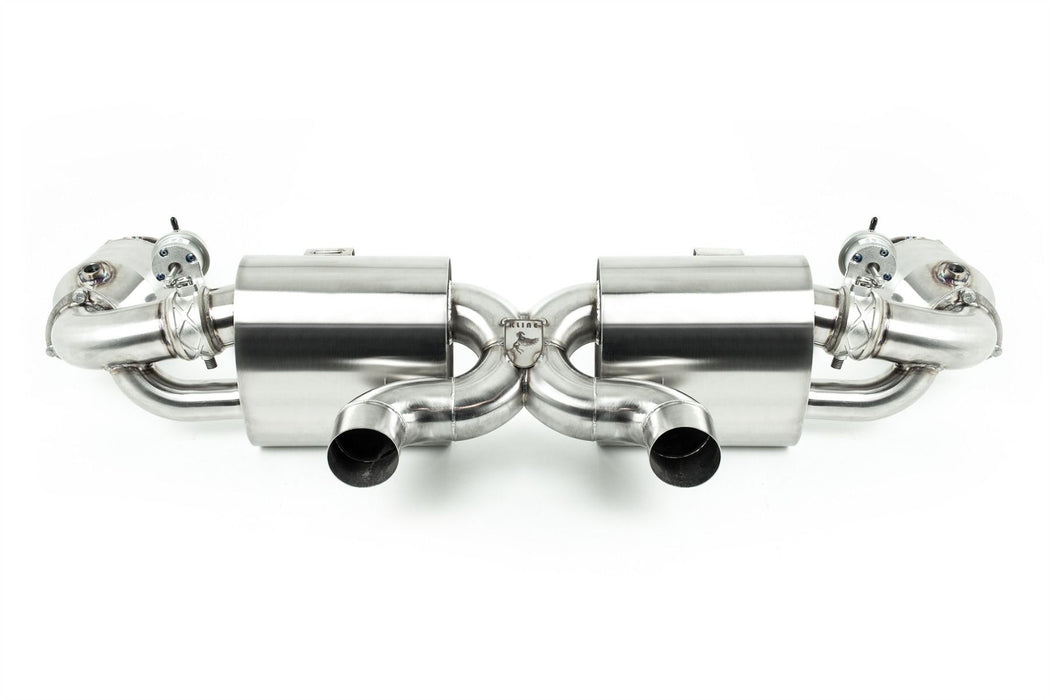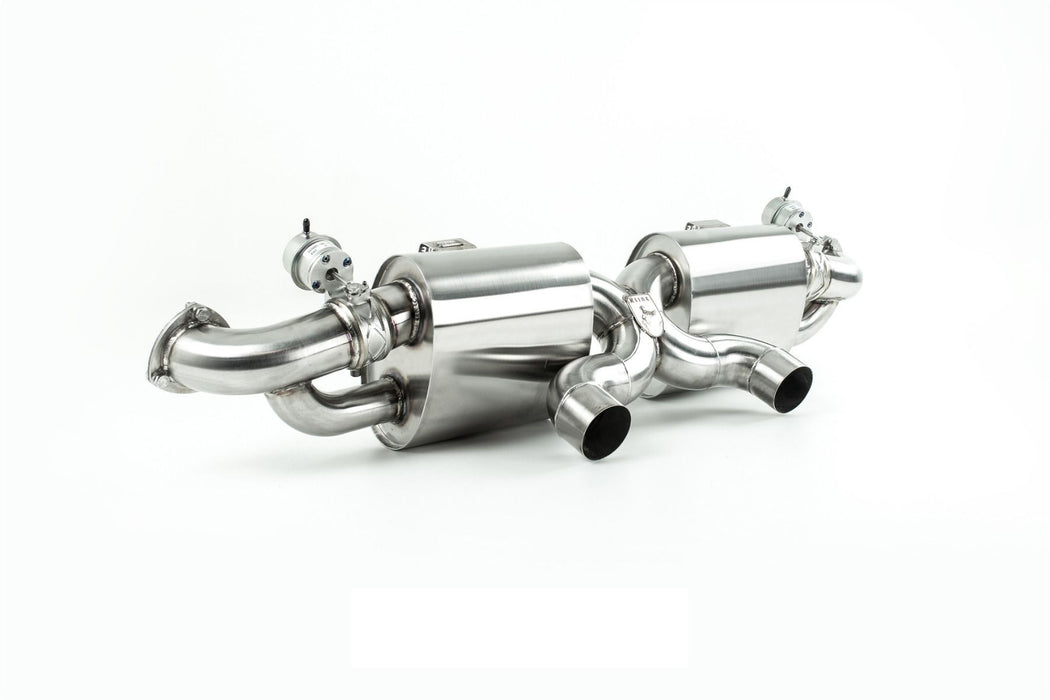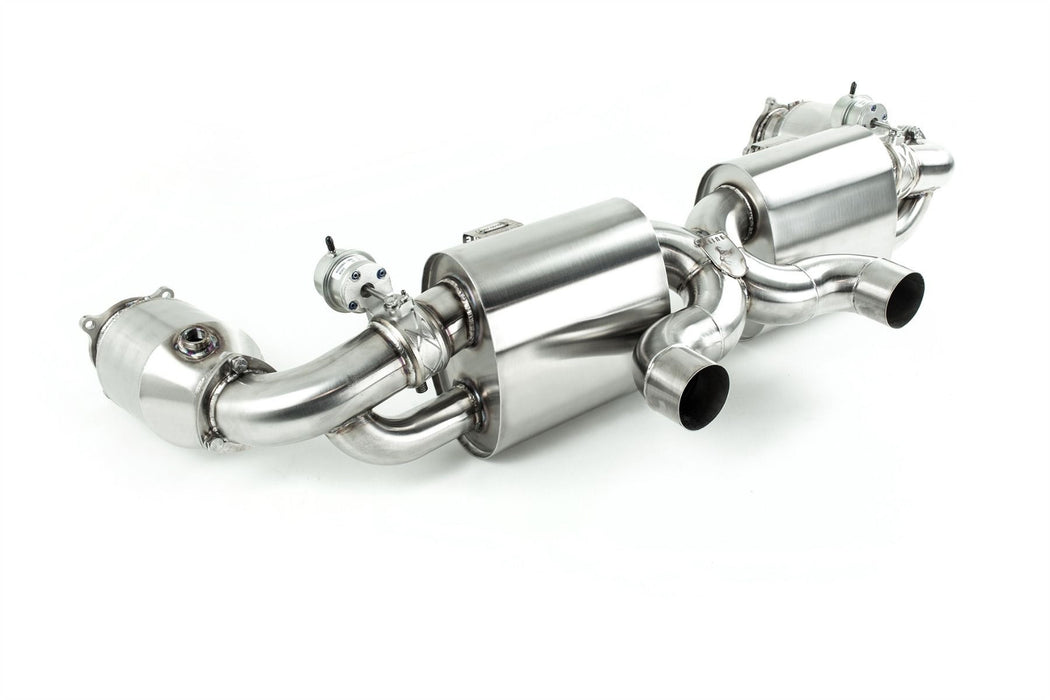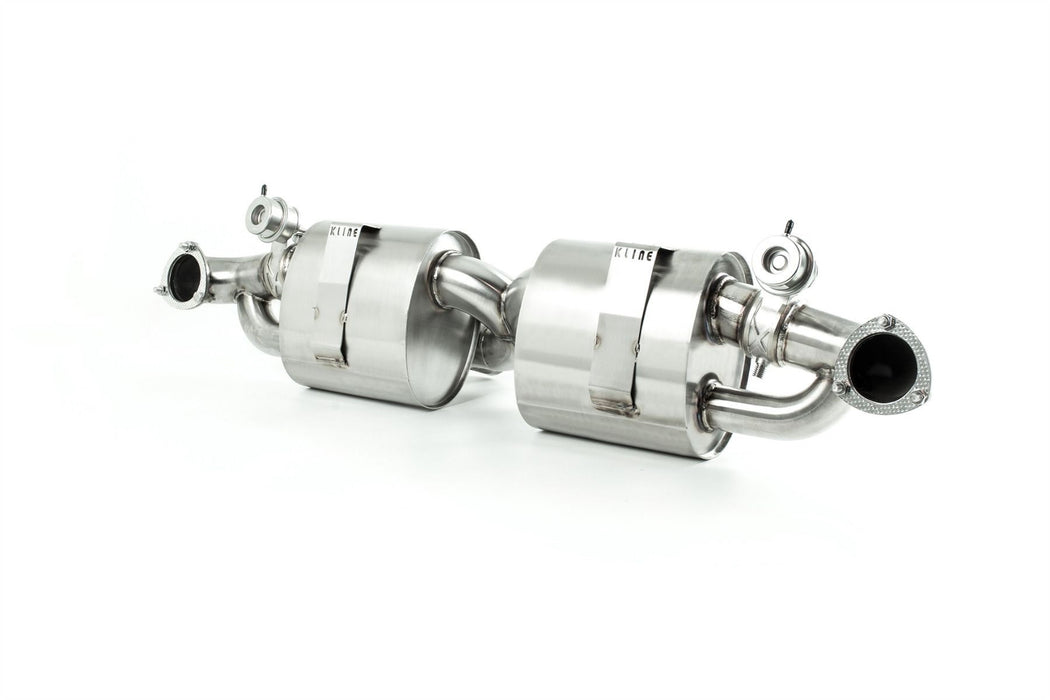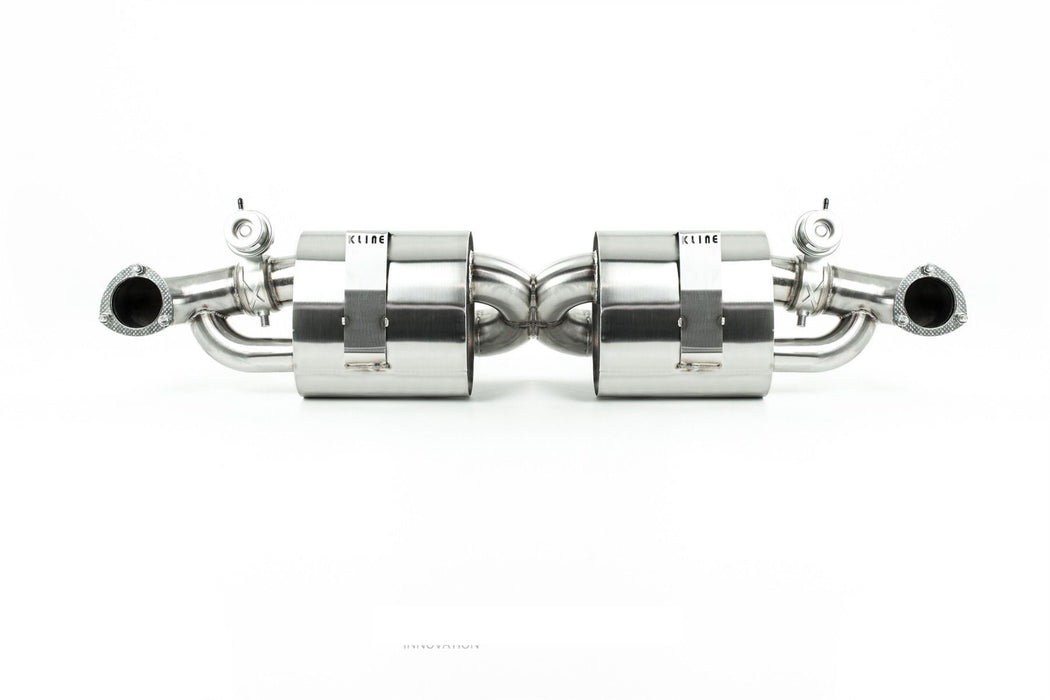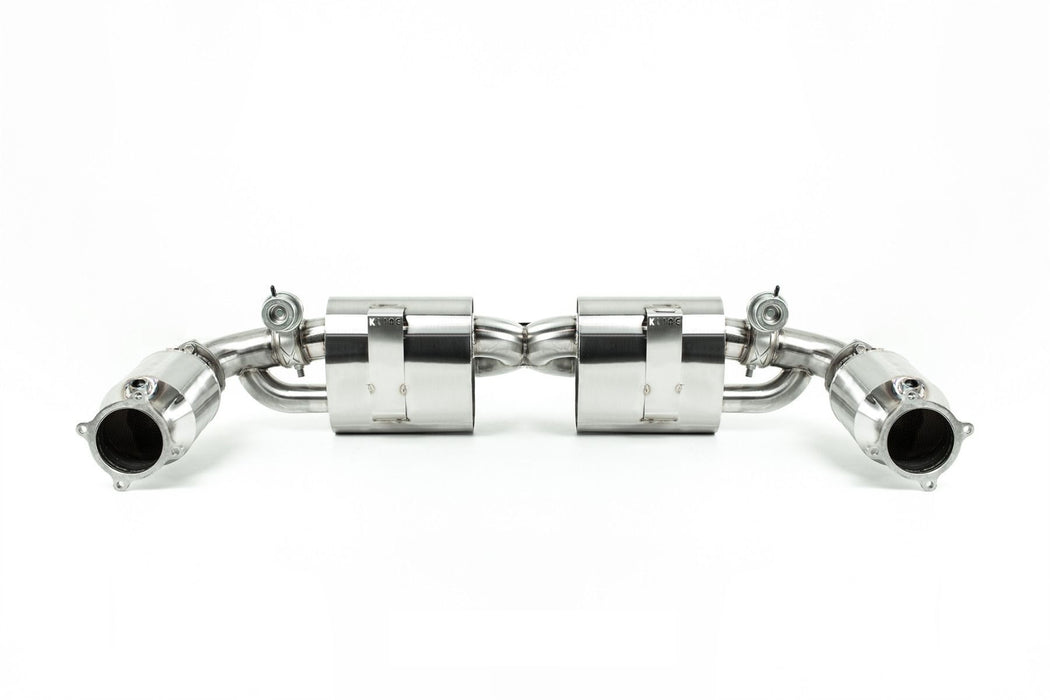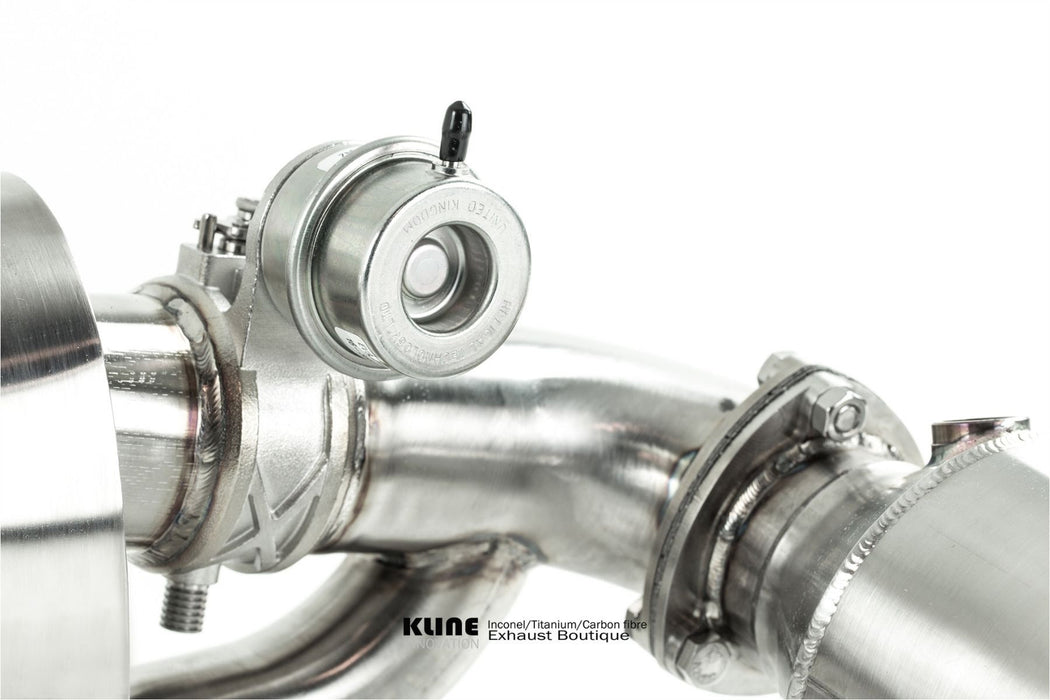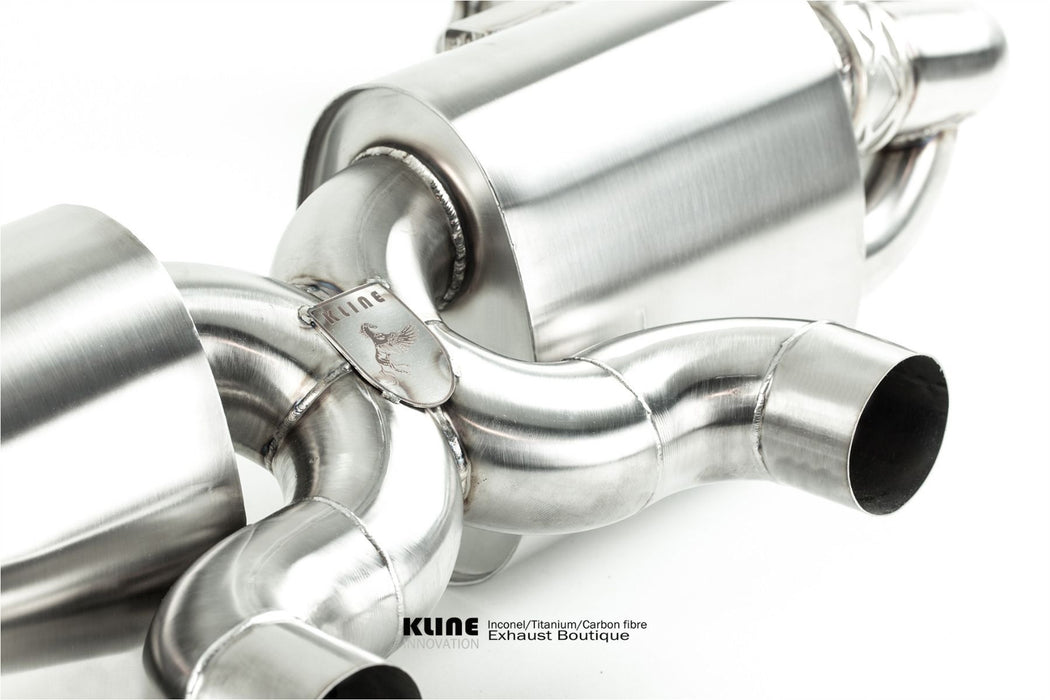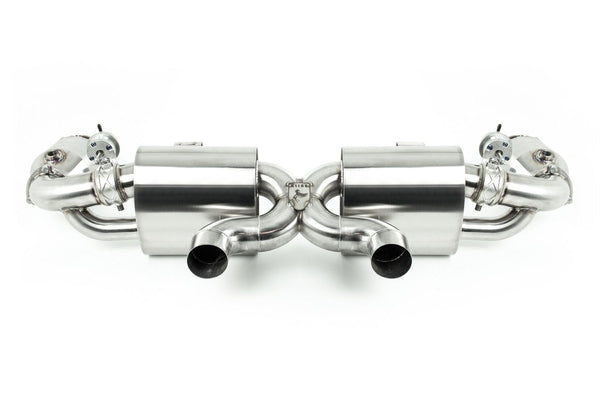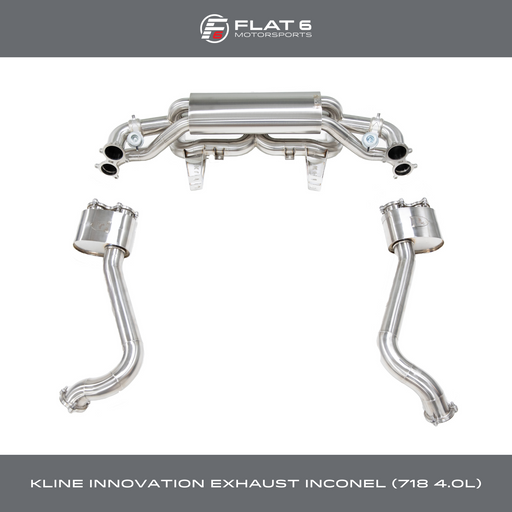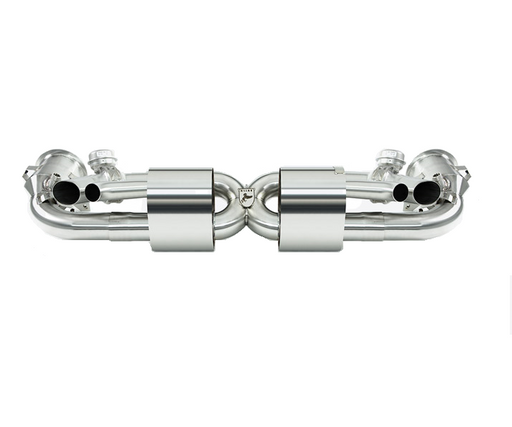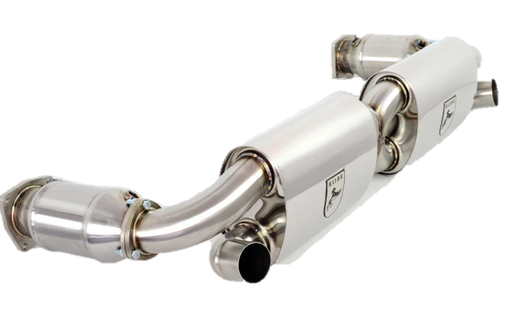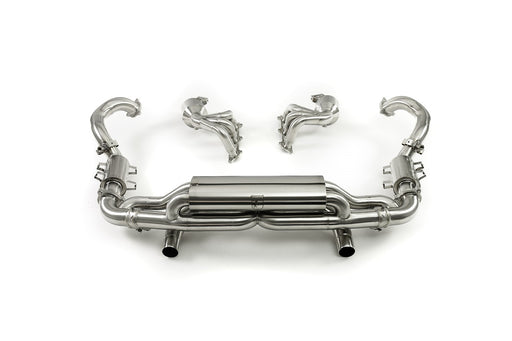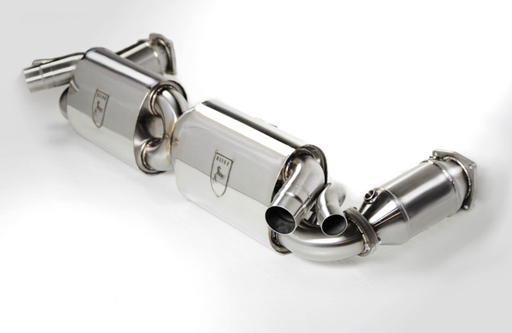Kline Innovation Turboback Valvetronic Exhaust System (991.2 Carrera w/PSE)
Designed to fit
- 2017 - 2019 Porsche 911 Carrera / Carrera S / Carrera T (991.2)
Product Details
This Kline Porsche exhaust system weighs just 11.2 kg including the High flow 200 Cell Catalysts!
Kline's trademark perfect x pipe geometry, harmonically tuned silencer geometry, Inconel 625, and their proprietary acoustic silencer packing materials resulted in a system that has become famous for that perfect sound. Zero drone, and a raised pitch raucous incendiary howl in higher rpms and hard throttle.
The x pipe geometry, designed to give a particular tone, a tone which has become synonymous with all Kline valvetronic exhaust systems as they all share the same relative geometry. This geometry within the x pipe is the result of a lot of R&D work specifically around tonal quality of exhaust notes but minor changes in its geometry vastly effect exactly how the gas resonates at varying rev regions and gas throughput.
With the valve open, the Kline Porsche exhaust system becomes completely free flow, the exhaust discharge only flows through the x pipe, and a very short resonator section of silencer, this is just to take the harsh edge off of the exhaust note, so your left with an aggressive yet smooth sounding exhaust note, just loud enough to turn heads and fill the cabin with a pleasurable sound and driving experience.
With the valve closed, the gasses pass through 4 chambers, and 4 resonated sections, and the x pipe bringing the car into just a touch louder and smoother than stock. This makes the cruising driving virtually silent.
The resonant qualities of the material Inconel produces an extra richness to exhaust note that you simply just don’t get with any other material, really it is just intoxicating in the flesh!
About Kline Innovation

Kline Innovation is a Bucharest, Romania based exotic exhaust manufacturer who utilizes exotic materials to innovate high-end systems for Porsche, Ferrari, Lamborghini, Aston Martin, Audi, Bentley and McLaren. At Kline they take exhaust design very seriously. Consumers demand a no compromise product, and they take a no compromise approach to design and manufacture.
MATERIALS
At Kline Innovation they believe in the absolute best materials for every application, chosen scientifically by the materials natural properties. Titanium/Inconel/Carbon fiber exhaust boutique, they also offer 304 stainless steel as an alternative on their complete range. Every material has its own unique properties, and perfect application based on weight, strength, heat resistance, and chemical stability. Kline strives to craft some of the world’s best lightweight exhausts utilizing every innovation possible!
The following is a brief overview and explanation of the different materials they use, properties, and functions.
INCONEL
Inconel 625 is used in the aerospace industry where extremely durable and heat withstanding components are required. As an example, Inconel is used for the exhaust turbine blades in high performance jet engines. Inconel is used for the manufacture of formula one exhausts, and has also been used by some manufacturers on hypercar projects such as the Mcalren P1, Aston Martin 177, where lightness is a factor, and exhaust temperatures regularly exceed 1800 degrees fahrenheit.
The basic properties of Inconel are characterized by extremely high tensile strength, and extreme thermos-chemical stability. Due to the high tensile strength of Inconel (roughly the same strength to weight ratio as titanium), very thin sidewall material can be used, while still maintaining structural integrity, resulting in very light weight components that will not fatigue over time. The main drawbacks to using Inconel, is that it’s extremely difficult to machine and weld, and requires a high degree of skill and involves a time consuming processes. It’s also extremely expensive as a raw material.
TITANIUM
Titanium in its varying grades is commonly used in a variety of applications where strength to weight ratio is paramount. Very high tensile strength and low density mean that very light and strong components can be manufactured easily. Titanium is also relatively easy to machine and weld using standard engineering approaches. The main disadvantages to titanium, is the cost of material, and prolonged heat exposure exceeding 1100 degrees fahrenheit causes oxidation of the material, resulting in brittle components and potential breakages. For this reason titanium is best suited to cooler applications where strength and lightness is a factor.
STAINLESS 304
Stainless steel 304 grade has become the industry standard for exhaust manufacturing. It’s moderate strength, thermos-chemical stability, inexpensive, and easy to manufacture. 304 stainless can be used to build relatively inexpensive exhausts to a high standard of functionality and durability. The main drawback to stainless steel is the weight. Roughly the same density of steel, but reduced tensile strength, building high performance exhaust components from stainless can be limited. Also from the perspective of sound, the thick sidewall required from stainless, can produce a slightly dull lackluster sounding exhaust note when compared to the previously mentioned materials!
CARBON FIBER
Carbon fiber reinforced polymer has an extremely high tensile strength to weight ratio, surpassing that of all metals. Extremely light weight components can be molded to almost any shape. The main drawback to carbon fiber being, the material cost, the fatigue endurance limit is hard to define (the material can break unexpectedly), and the lack of prolonged heat resistance due to the polymer binding agent.

